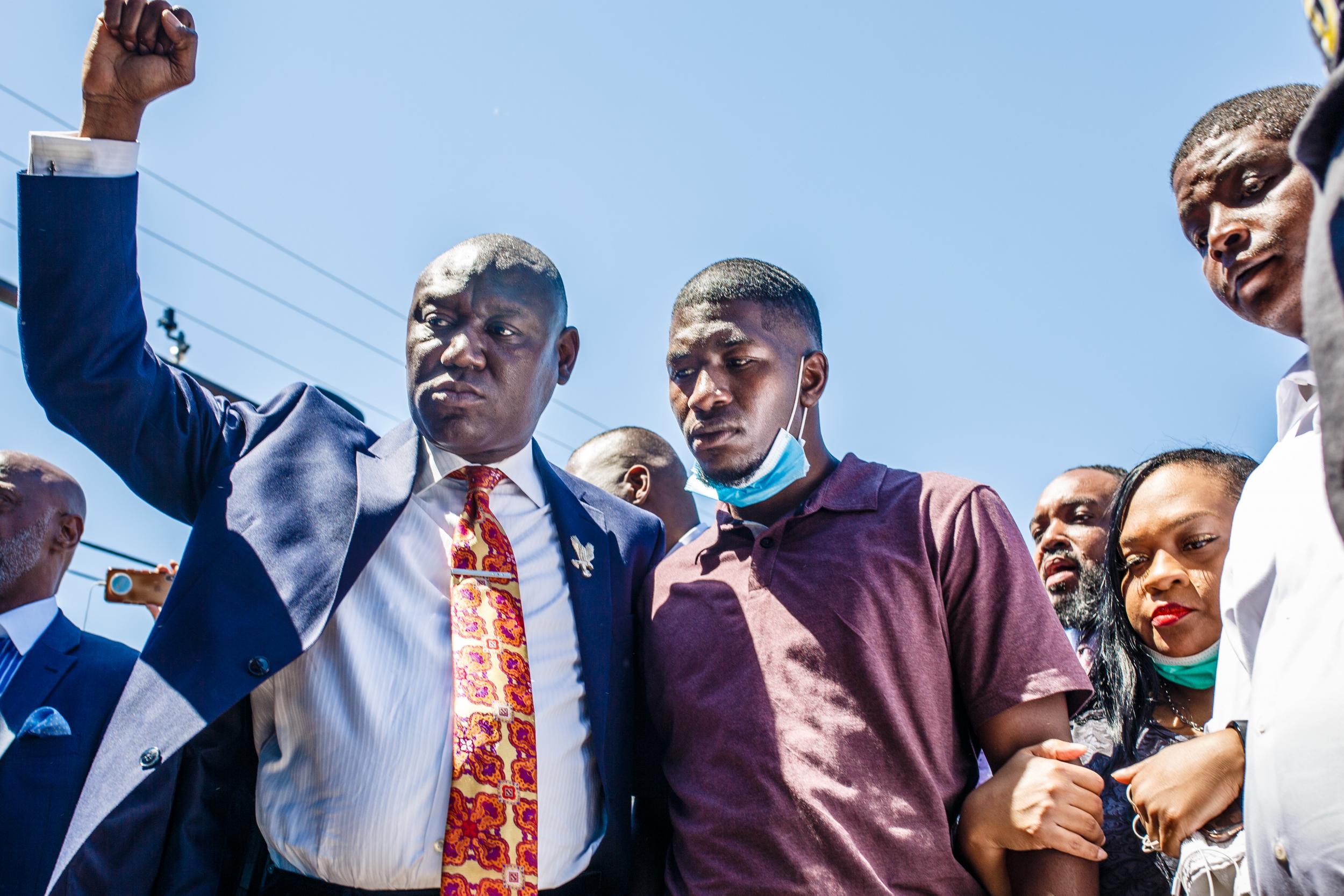George Floyd: Three other officers charged as accomplices and Derek Chauvin charge upgraded to second-degree murder
All former officers now charged following death of black Minneapolis man
Three former Minneapolis police officers involved with the death of George Floyd have been charged as accomplices in his murder, Minnesota Attorney General Keith Ellison has announced.
Derek Chauvin, who was captured in widely shared footage digging his knee into the back of Mr Floyd's neck for nearly nine minutes on Memorial Day, was charged with third-degree murder and second-degree manslaughter four days later.
The attorney general has now elevated those charges to also include second-degree murder. Sentencing guidelines recommend up to 40 years in prison for second-degree murder and 25 years for third-degree murder, if convicted. Second-degree manslaughter could carry a sentence of 10 years in prison.
Arrest warrants were also issued for Thomas Lane, Tou Thao and J Alexander Kueng on charges of aiding and abetting second-degree murder. Mr Kueng is in custody at Hennepin County Jail, according to jail records, and two others are expected to be arrested on Wednesday, officials said.
Mr Thao was filmed standing near Mr Chauvin. He has had six police misconduct complaints against him and was the subject of a 2017 police brutality lawsuit, along with another officer.
Mr Kueng pinned down Mr Floyd, and Mr Lane drew his gun and pointed it at Mr Floyd before handcuffing him. Neither officer had any previous complaints against them, according to records obtained by the Star-Tribune.
In Mr Chauvin's initial charging documents, prosecutors said that "police are trained that this type of restraint with a subject in a prone position is inherently dangerous".
While Mr Floyd called out "I can't breathe", "mama", and "please", "none of the three officers moved from their positions," prosecutors said.
On Monday, the Hennepin County Medical Examiner ruled Mr Floyd's death a homicide caused by "cardiopulmonary arrest complicating law enforcement subdual, restraint, and neck compression".
An independent autopsy discovered that pressure applied to Mr Floyd's carotid artery "impeded blood flow to the brain, and weight on his back impeded his ability to breathe" and killed him at the scene.
The latest charges follow the Minnesota Department of Human Rights filing a civil rights case against the Minneapolis Police Department.

Protests across the US in all 50 states and Washington DC and around the world have called for justice in the wake of Mr Floyd's death, galvanising a mass movement against police brutality and systemic racism. Demonstrations will continue for a second week following his death, as a growing number of elected officials and law enforcement have joined the call to press charges against the officers involved.
Attorney General Ellison took the lead in the case last week alongside Hennepin County District Attorney Mike Freeman.
"This is a bittersweet moment for the family of George Floyd," said attorney Benjamin Crump, who is representing Mr Floyd's family. "This is a significant step towards the road to justice, and we are gratified this important action was brought before George Floyd's body was laid to rest."
He said that Attorney General Ellison told the family that he will upgrade the charges to first-degree murder if evidence supports it. First-degree murder convictions require premeditation and intent, the attorney general said.
Asked whether his office would consider plea deals for the four officers, Mr Ellison said that "it's simply way too early to begin that conversation".
"George Floyd mattered, he was loved," Mr Ellison said. "One successful prosecution cannot rectify the hurt ... That work is the work of all of us. We don't need to wait for the resolution of this case to start that work."
He called on officials, faith leaders and organisers to re-evaluate criminal justice systems, pointing to the state's historic lack of convictions for police misconduct.
"Winning a conviction will be hard," he said. "History does show that there are clear challenges here and we are going to be working very hard and relying on each other and our investigative partners and the community to support that endeavour."
Mr Ellison said that mass protests and demonstrations are "dramatic and necessary" while "building just institutions is more of a slow grind but equally important".
Join our commenting forum
Join thought-provoking conversations, follow other Independent readers and see their replies
Comments
Bookmark popover
Removed from bookmarks